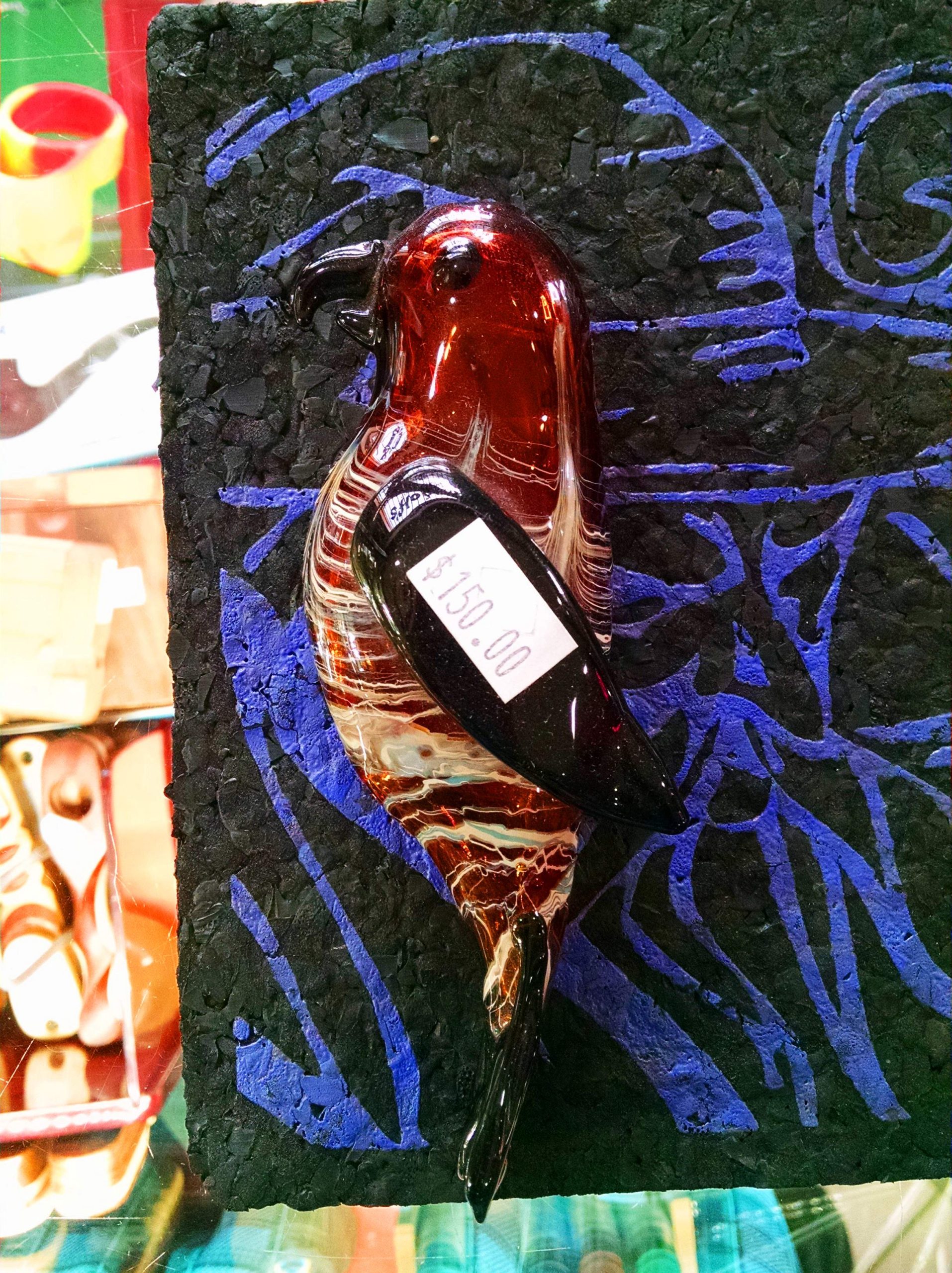Independent bookstores struggled through the last couple decades, while big box superstores – more convenient and less expensive – took over. Pessimists quickly sounded the indie store’s death knell; but they were wrong. Independent bookstores have been making a comeback. Lucky for those of us in Durango, Maria’s Bookshop is no exception. In fact, they’ve been flourishing all along; “People realized what we offer is a hand-cultivated choice of books,” said Andrea Avantaggio, co-owner of Maria’s. “The whole thing about people being enamored about getting access to every book ever written … that’s sort of over, because you still have to find a good one. And that’s what we do.” Maria’s is celebrating Independent Bookstore Day this Saturday, with several in-store events.
The overwhelming selection in a corporate box shop like Barnes and Noble or online at Amazon can be a detriment to the reading process – too many choices. Smaller bookstores more carefully select books that fit their customers’ requirements, catering to a person’s specific tastes and needs. A larger store needs more employees to run it, so staff members are often less knowledgeable about their product (quantity over quality). “We get to hire people who are passionate about reading, who have been devouring books their whole lives,” said Avantaggio.
Readers of Durango
You might suspect an indie bookstore would suffer in a small mountain town. Are there enough people here to buy all those books? Do Durangoans even read in between ski runs at Purgatory or traipses into the woods? The answer to both of these questions is a resounding yes. “Our success in Durango has to do with the fact that we have a very supportive community,” said Avantaggio. “People don’t just end up in this town – they choose to come. They’ve lived in a bunch of other places or gave up a lot of other things to be here, because community is important to them. And a lot of people associate a vibrant indie bookstore with a thriving community; it becomes a gathering spot, like your favorite coffee shop.” The residents of Durango aren’t living in the suburbs, and most enjoy walking downtown, mingling with fellow townsfolk, soaking in the culture and supporting home-grown commerce. And if Colorado has a reputation for anything (besides cannabis consumption and an excess of breweries), it is our penchant for purchasing goods locally. “Durango is great for any independent business – not just bookstores – because it’s imperative to people here to buy local,” said Roger Cottingham, Maria’s community relations manager.
Despite potential stereotypes, Durango does not exclusively house outdoorsy bros who would rather camp than pick up a book. (Durangoans will actually bring a book with them camping). “It’s kind of the perfect storm – we have the college, retirees who are still super active, a professional and agricultural and Native American base … So there are lots of different pockets of interest,” said Avantaggio. “That means we can sell a huge variety of books.” Avantaggio admits booksellers visiting from other Colorado towns express envy at Maria’s ability to sell a diverse range of books; other bookstores have much narrower markets, in terms of the genres they can stock.
Maria’s also connects with the community by placing a large priority on supporting local authors. “We carry their books and do events for anyone who says they can bring in an audience,” said Avantaggio. Cottingham, too, appreciates the difficulty of producing a book; “It’s a real achievement to do something like that,” he said. “So we want to congratulate them and help get the word out.” Many local authors are self-published, meaning they need extra help marketing their work and getting it into people’s hands.
The survival of hard-copy books
In the digital age of e-readers, Kindles and Netflix marathons, one might assume hard-copy books are losing relevancy. But that’s not necessarily the case. “Lots of people are using e-readers,” said Avantaggio, “But we’ve been hearing over and over again – people come in here to confess – they don’t love their e-readers. We all spend so much time in front of screens, but a screen can get in between your experience with a book. It gets in the way of getting lost in the story.” The exhausting pace of our modern busy lives often results in lazy Netflix binging; film and TV generally require less effort on a person’s behalf than books do. You don’t have to imagine anything; you see what the characters look like, what they’re wearing, the locations they’re in. With a book, all that must be invented inside your head. You have to work harder.
Kirbie Bennett, a senior at Fort Lewis College, has worked at Maria’s (his “dream job”) for almost a year. “I’m working with some of the brightest people I’ve ever met,” said Bennett. Hard-copy books are his preference, despite his millennial-standing at age 28: “I’m not opposed to e-books. I understand the convenience – but my interest dwindled. I prefer something tangible, and see that as taking a break from the rabbit hole of electronic hallucinations.” Bennett has noticed far more adults reading e-books (including his own mother) than younger people. Perhaps it’s the novelty; the older generation spent most of their lives without digital exposure, whereas millennials grew up “digital natives,” so to us it’s all par for the course.
Meghan Doenges, a 23-year-old FLC senior and Bennett’s co-worker, used a Kindle when she backpacked around Europe two years ago; but hasn’t picked it up since. “In terms of finding quick information, we definitely use the Internet rather than sitting down with a nonfiction book,” said Doenges. “But there’s also a high degree of book reading in the peer groups I spend time with.” Doenges says many of her college-age Durango friends and acquaintances don’t have TV, cable or WiFi in their homes. Of course, those things are expensive. But Doenges also believes “Durango fosters the kind of outdoors, hands-on environment where people don’t want to be watching TV all the time.” Doenges is planning a rafting trip along the Grand Canyon, and says her group of friends will be bringing a box full of books with them.
Cult filmmaker John Waters crudely (but sensibly) advised: “If you go home with somebody and they don’t have books, don’t [bleep] ’em!”
“The books we love tell the story of who we are,” said Avantaggio. “If someone comes in your house and all your books are on your phone or e-reader – what can they look at? People want to tell their story, so they collect books. They want to be reminded. In our transient world, there is a concreteness to saying: these are the most important books in my life because they tell me the story of who I am and who I’m becoming.”
The one-on-one customer interaction provided by indie bookstores like Maria’s is a powerful responsibility: you might be helping someone find their next favorite book. It could become a huge part of their life. Good thing the team at Maria’s is up for the challenge.












